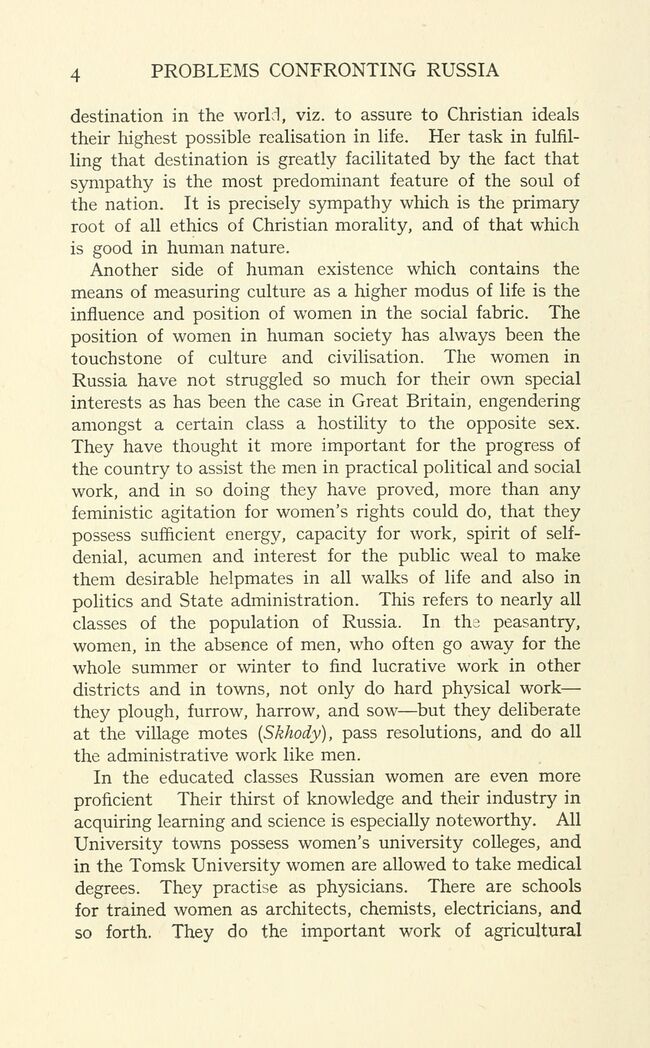
Full resolution (JPEG) - On this page / på denna sida - I. The evolution of the state and social organisations of Russia

<< prev. page << föreg. sida << >> nästa sida >> next page >>
Below is the raw OCR text
from the above scanned image.
Do you see an error? Proofread the page now!
Här nedan syns maskintolkade texten från faksimilbilden ovan.
Ser du något fel? Korrekturläs sidan nu!
This page has never been proofread. / Denna sida har aldrig korrekturlästs.
26 PROBLEMS CONFRONTING RUSSIA
destination in the world, viz. to assure to Christian ideals
their highest possible realisation in life. Her task in
fulfilling that destination is greatly facilitated by the fact that
sympathy is the most predominant feature of the soul of
the nation. It is precisely sympathy which is the primary
root of all ethics of Christian morality, and of that which
is good in human nature.
Another side of human existence which contains the
means of measuring culture as a higher modus of life is the
influence and position of women in the social fabric. The
position of women in human society has always been the
touchstone of culture and civilisation. The women in
Russia have not struggled so much for their own special
interests as has been the case in Great Britain, engendering
amongst a certain class a hostility to the opposite sex.
They have thought it more important for the progress of
the country to assist the men in practical political and social
work, and in so doing they have proved, more than any
feministic agitation for women’s rights could do, that they
possess sufficient energy, capacity for work, spirit of
self-denial, acumen and interest for the public weal to make
them desirable helpmates in all walks of life and also in
politics and State administration. This refers to nearly all
classes of the population of Russia. In the peasantry,
women, in the absence of men, who often go away for the
whole summer or winter to find lucrative work in other
districts and in towns, not only do hard physical work—
they plough, furrow, harrow, and sow—but they deliberate
at the village motes (Skhody), pass resolutions, and do all
the administrative work like men.
In the educated classes Russian women are even more
proficient Their thirst of knowledge and their industry in
acquiring learning and science is especially noteworthy. All
University towns possess women’s university colleges, and
in the Tomsk University women are allowed to take medical
degrees. They practise as physicians. There are schools
for trained women as architects, chemists, electricians, and
so forth. They do the important work of agricultural
<< prev. page << föreg. sida << >> nästa sida >> next page >>